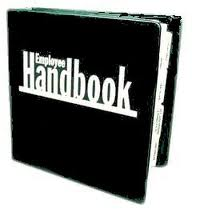

Fairness is one of the most important characteristics employees look for in an employer. Part of the challenge in managing a staff is simply knowing the policies that have been set up in the past. Having office policies in writing is a big advantage because there is no doubt about what the rules are and 90% of the fairness test is met if the employee knows a policy in advance.
There are two different kinds of office manuals. There is a Policy manual, discussed here and there is a Procedure manual, which covers how to perform actual tasks in the office ( see Daily Accounting Procedures for an example). Both are very important and beneficial.
A policy manual would describe how an employee requests a vacation while the procedure manual would describe how an employee performs keratometry on a patient.
Can it have too much detail?
While it's important to give details about the rules of the office, too much detail can cause problems. You will generally have to follow the rules of the manual. That may seem fine, since that's the point in the first place, but remember that one set of rules does not always fit every situation. You may not think of something when you devise a policy and if it's very specific you may lose any flexibility. For example, if you list the steps that are supposed to occur if an employee is disciplined or discharged, you may be bound to follow those steps. If you give a job description that is very detailed, it may be difficult to ask and employee to do something not listed. An office manual could be treated as an employment contract by a court of law or by a state department of employment.
To help you get started here are topics you may wish to consider in your Office Policy manual.
Topics to include
1. |
General Philosophy of the Office |
2. |
Vision Statement |
3. |
Our Practice Motto |
4. |
History of the Practice |
5. |
Practice Ownership |
6. |
Employee Benefits |
7. |
Health Insurance |
8. |
Uniforms and Personal Appearance |
9. |
Continuing Education and Travel |
10. |
Eye Care Benefits |
11. |
Financial incentives from suppliers |
12. |
Work Schedule |
13. |
Paychecks |
14. |
Vacation Days |
15. |
Personal Days (Sick Days) |
16. |
Personal Time Off |
17. |
Overtime |
18. |
Complaints by Patients |
19. |
Employee Parking |
20. |
Confidential Patient Information |
21. |
Confidential Proprietary information |
22. |
Alcohol and Drug Use |
23. |
Personal Telephone Calls and Internet use |
24. |
Chewing Gum |
25. |
Smoking |
26. |
Maternity Leave |
27. |
Jury Duty |
28. |
Lunch Period |
29. |
Probationary Period |
30. |
Employment at will |
31. |
Resignation or discharge |
